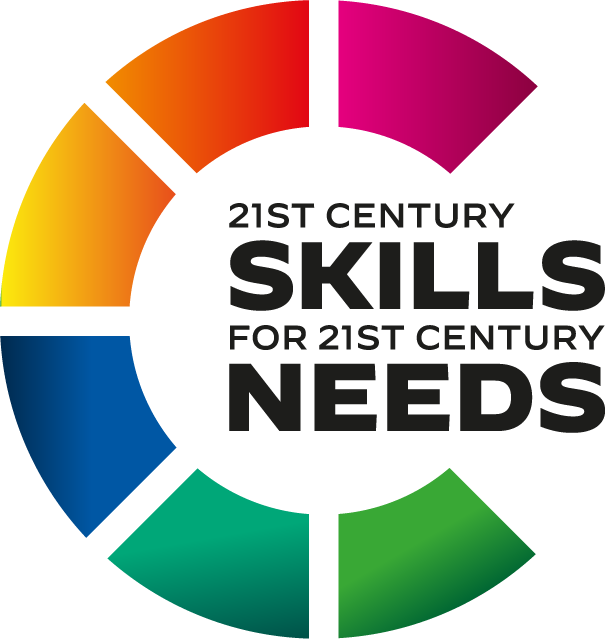Philosophical Timeline - Romania
Our team worked on Character.
Elisabeth from Norway and I chose to make a philosophical timeline with our students (from Norway and Romania) and then share information and reflection online in a virtual classroom where Norwegian and Romanian students met and discussed together.
The project was done in 3 stages (the total duration for Romanian students was 3 weeks):
Stage 1: understanding the problem starting from a philosophical question: How did European thinking change in the past 500 years from the subject-object relationship during monarch times towards a subject-subject relationship and human rights in contemporary times?
Students were given a timeline with different philosophers from various centuries (starting from 1500 AD until 2000 AD): Descartes, Hume, Locke, Rousseau, Hobbes, Leibniz, Spinoza, Kant, Voltaire, Montesquieu, Hegel, Marx, Nietzsche, Kierkegaard, Brandes, Linne, Levinas, Freud, Arendt, etc.
Each student chose a philosopher and searched various information, with special emphasis on 3 aspects: the life of that philosopher, the major works of that philosopher, and the main philosophical ideas that the philosopher had. Students developed the ability of learning to learn and of self-regulated work. It was a difficult challenge, but all students faced it and coped with it because they were determined to make a very good project and to really understand what happened in the past 500 years that the Occidental ideas changed for the better.
Then students who had the same philosopher gathered in teams of 2-3 in each class (music and arts): they put together the information they found and started creating some posters with the 3 aspects: life, works, and philosophical ideas of the philosopher they had (e.g. life, works, and philosophical ideas of Descartes: Descartes idea that the human being is a rational subject whose intellect is an autonomous source of knowledge contributed to the Modern idea that every human being is a subject with reason, and not an object, because any person with reason is aware of the fact that he or she has rights, freedom, independance of thought and of movement etc.). Because students understood that they must be honest both to themselves and to their team mates in proceeding with their work, the process of learning and working together was be transparent and, therefore, efficient, hence another dimension of building character was attained.
Stage 2: discussing the place in the timeline of the chosen philosopher with the teams from a different class: What did we find, how do we understand this?
The teams from one class (e.g. music) met with the teams from the other class (e.g. arts) and discussed about what they had found and how that philosopher contributed to the evolution of European thinking: e.g. Kant team from one class discussed with Kant team from the other class etc. Students could thus develop the ability of claiming values and being able to be independent in choosing those values with regard to the philosophic ideas they agreed upon, as well as saying “no” to what they considered outside of the problem or poorly argued or reflected, as well as that of being resistant and enduring in order to achieve their own goals in finishing the project and the goals of their team as well.
Stage 3: discussing with their colleagues from Norway: What did we learn?
Teachers gathered the lists of phone numbers from each team (team Hegel, team Kant,
team Voltaire, etc) and exchanged.
For a duration of 2 hours, Romanian and Norwegian students met online and each Romanian team discussed with a Norwegian team about their common chosen philosopher (e.g. Romanian team “Kant” discussed with Norwegian team “Kant”) - they discussed about the information they found, about the place of that philosopher in the timeline, about the way he contributed to the evolution of ideas, about what students found interesting and new in this way of making a project, as well as about their school and classes.
Conclusion:
The main focus of this project was the competence that was selected for our team was Character, with special emphasis on the ability of learning to learn, own learning, self-regulated work, claiming values and independence of choice, resistance and endurance.
I wanted my students to develop the ability of learning to learn, of regulating their own learning and conducting a self-regulated work, as well as to face hard challenge and cope with it. They developed character as learning to learn from others, as being independent in choice and decision and having the courage of stating values.
Character was emphasized since it was all about self-regulated work, with great responsibility in value choosing for the benefit of the team (e.g. synthesizing big pile of data about a certain philosopher and choosing responsibly to present to others, colleagued from school as well as colleagues from a different country), as well as resistance and endurance in working and delivering upon commitment for the team (e.g. many hours of reading, selecting information, sharing etc.). Students learned to be independent in choosing values, as well as saying “no” whenever they found or heardsomething that was not in the line of their reflected and chosen values. All students were determined to succeed and for this reason they showed perseverance and kept fulfilling their tasks until they finished the project.
The most important aspect of this project is the fact that it generated deep learning: students were able to apply this type of work in other life situations (e.g. some students worked in teams and, with the help of a student representative, they contacted a school from a different city and proposed them a similar type of work as they did in this project with the idea of meeting online and discussing, reflecting and building knowledge together on the topic of art).
